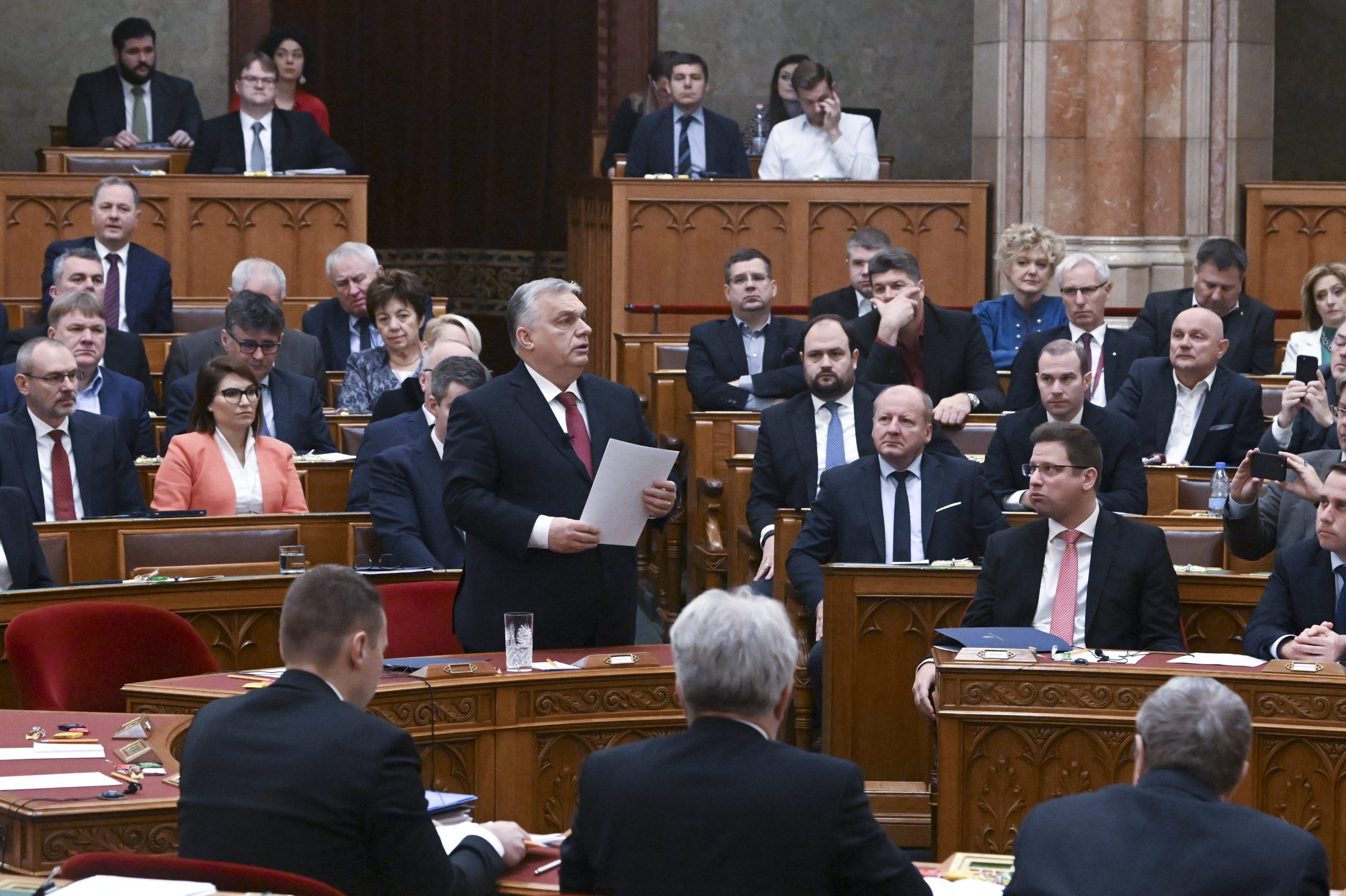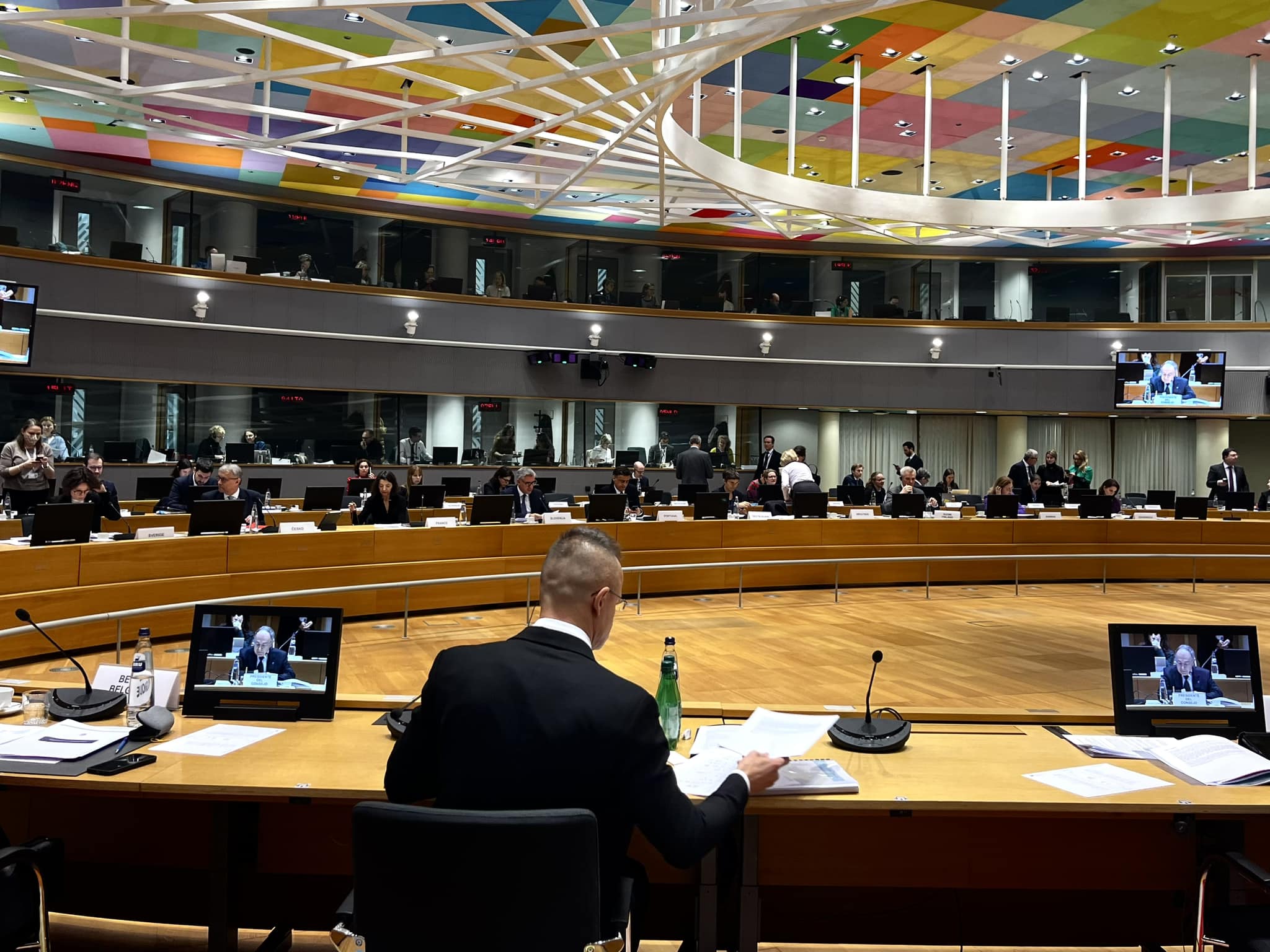
"The time for Ukraine's EU membership has not yet come," the Prime Minister stated.Continue reading

Contrary to the original aims of the majority of Member States and despite pressure, no decision was made at Tuesday’s meeting of EU ministers on the opening of accession negotiations with Ukraine, Foreign Minister Péter Szijjártó declared in Brussels.
The minister said that negotiations with Ukraine on EU accession would not begin, and that Ukraine’s accession would therefore not take place for the time being. Instead, the General Affairs Council had merely taken note of the committee’s report,
but had not made a decision on the content of the document,
he added.
This means that the matter will be referred to the European Council, which will decide on the progress of Ukraine’s accession negotiations.
The government had managed to remove from the original proposal the prospect of measures against the Serbs and the threat to freeze community funds for Republika Srpska in Bosnia, as well as points that would have made the negotiation process with North Macedonia impossible, the minister announced.
Contrary to European or world public opinion, the EU countries in favor of enlargement are in the minority,”
Péter Szijjártó emphasized.
He added that the majority are in favor of enlargement in public, but in a narrow circle, most of them admit that this is not an option at the moment. According to the minister, it is no coincidence that a country has not joined the EU for ten years (Croatia joined in 2013 – editor’s note).
The minister also pointed out that most debates currently revolved around Ukraine’s accession, while North Macedonia, for instance, has had candidate status since 2005. Nevertheless, the EU still wants to deal with the Ukrainians and not with the countries that have been waiting for a long time. Serbia, for instance, has been a candidate since 2012, but has not yet completed its accession process.
Why should we talk about Ukraine’s accession when other countries that have been ready to join the EU for years are not getting any attention?”,
asked Szijjártó.
The reason why the issue of countries on hold is not on the agenda is that there have always been EU members who have blocked these negotiations. Speaking on behalf of Hungary, Szijjártó asked why the country is branded a Putin supporter when it opposes Ukraine’s membership, while in the past no one had reservations about the veto of other countries.
“The European Union can only be complete when it can accept the Western Balkan countries into the community,” the Minister emphasized. He added that the Hungarian position on Ukraine was not part of a strategy. At the meeting on Tuesday, it was suggested that Hungary was pursuing some kind of strategy to block the start of negotiations with Ukraine in order to negotiate with the European Commission on the disbursement of EU funds.
Hungary is not exercising a tactical veto, but we have a clearly formulated position that Ukraine’s accession is not possible at the moment,”
the Foreign Minister said. He emphasized that Hungary supported the development of a closer partnership between the European Union and Ukraine, but that this could not take the form of accession.
Via MTI; Featured Image: Facebook / Szijjártó Péter